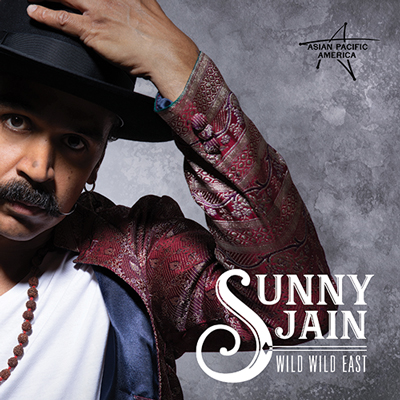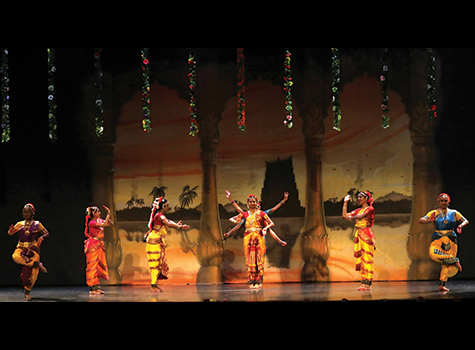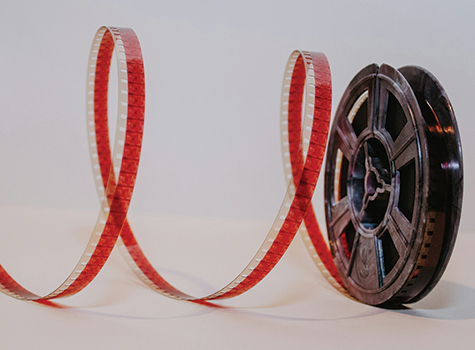
Sunny Jain
Wild Wild East
(Smithsonian Folkways Recordings)
Sunny Jain, bandleader of Red Baraat, recently released his new solo album, Wild Wild East. Jain is a Brooklyn-based rock and jazz drummer, composer and a master dhol player, ably straddling jazz, bhangra, Punjabi folk and Indian rhythms. His new recording is a mix of instrumentals, dissonant hip hop tracks and spirituals, touched with reflections on immigrants and minority communities. In the liner notes he writes about his visits to India, Jain was born to Indian American parents in Rochester, NY, and recalls his heritage while tapping into the current immigration ethos of America, as well as larger global community.
On this album Jain’s focus is on the myths of the American West, where people traveled to from other parts of the country to start new lives, and the travails of immigrants coming to the States to start new lives and beginnings. It’s about adaptation, making new surroundings, with all its ills and charms, your own.
“The idea of the American cowboy is this romanticized idea that’s just false,” Jain says. “The immigrant is the current-day cowboy or cowgirl. The idea was to address the cowboy mentality that we people of color — whether you’re red, brown, or black — face. The cowboy is this sheriff that you witness throughout American history, from the Wild West to the cops today, but if I were the native, if I were the African American, it’s like, ‘This cowboy is coming to shoot me down.’ This is not romantic to me at all.”
“Immigrant Warrior” is a mélange of rock, jazz, desi beats, throwing the curtains open and announcing that this is going to be an exploratory recording. Musical diversity inlaid to full effect.
The expansive title track “Wild Wild East“ pulses with a range of melodies, percussion and female vocalizing.
“Osian” begins as if an Indian wedding is in progress with its shehnai-influenced melody and then travels further into jazzy alleys.
In the hip hop back beat of “Red, Brown, Black” Rapper Haseeb raps about travails of minorities. The song is a fusion of hip hop beats with dhol and drums chugging along. It is the funkiest track on the album.
“Aye Mere Dil Kahin Aur Chal” is a rocking version of the Bollywood classic song from the 1950’s film Daag reinterpreted with surf guitars and dhol.
“Bhaagi” means rebel and talks about the 100 plus years of South Asian migration to the USA. Sung by Adiyta Prakash, the song has some wicked percussion and horns built in. It sounds like a Red Baraat song.
“Blackwell” is a floating instrumental piece featuring Alam Khan on sarod with soft bansuri (flute), guitar and percussion.
Another flashback to Bollywood is a version of “Hai Apna Dil to Awara” with female vocals, strolling guitar and percussion. The song was first heard in the 1950s film Solva Saal.
The classic bhajan “Tumse Lagi Lagan” gets a mood-altering treatment here. The most spiritual song on the album, it is performed simply with bansuri, soft guitars and percussion. The cut puts you in an immediate trance.
“Maitri Bhavanu” is another spiritual number that Jain further evolves musically into something 21st century while retaining its traditional aura.
“Brooklyn Dhamal” closes out the recording and is a mix of American West and Punjabi folk music. The song blooms into distorted guitar and booming percussion as it returns to earth with an abrupt end.
The album’s multi-musicality, given an open ear, converges into a whole. Its interconnectedness has a musical language all its own.
———-
Samir Shukla is the editor of Saathee magazine. Contact – [email protected]



